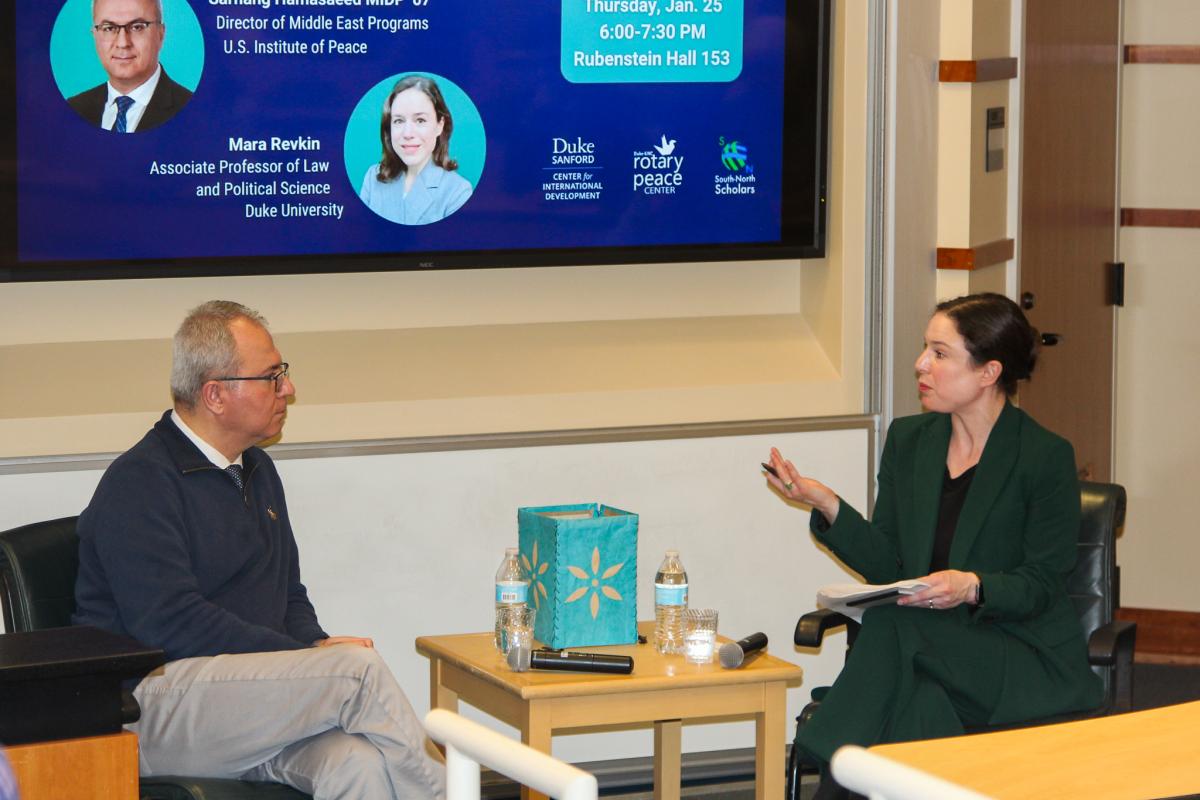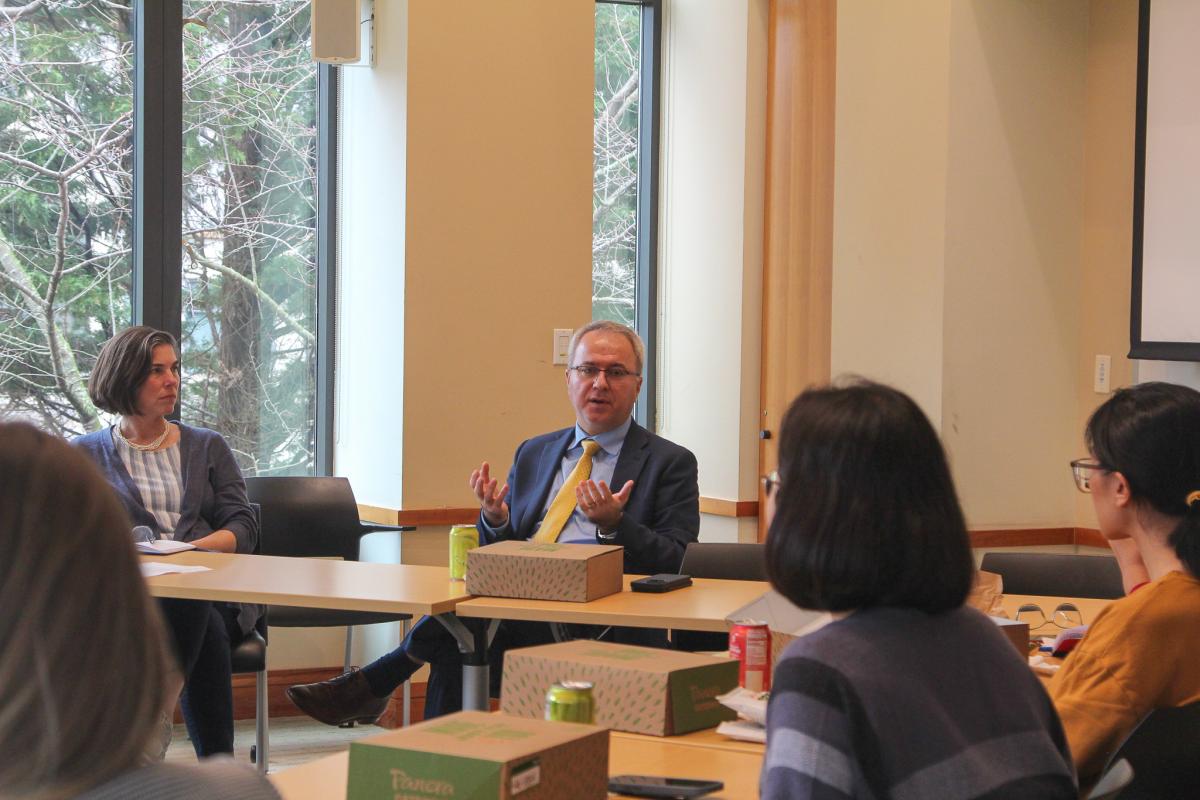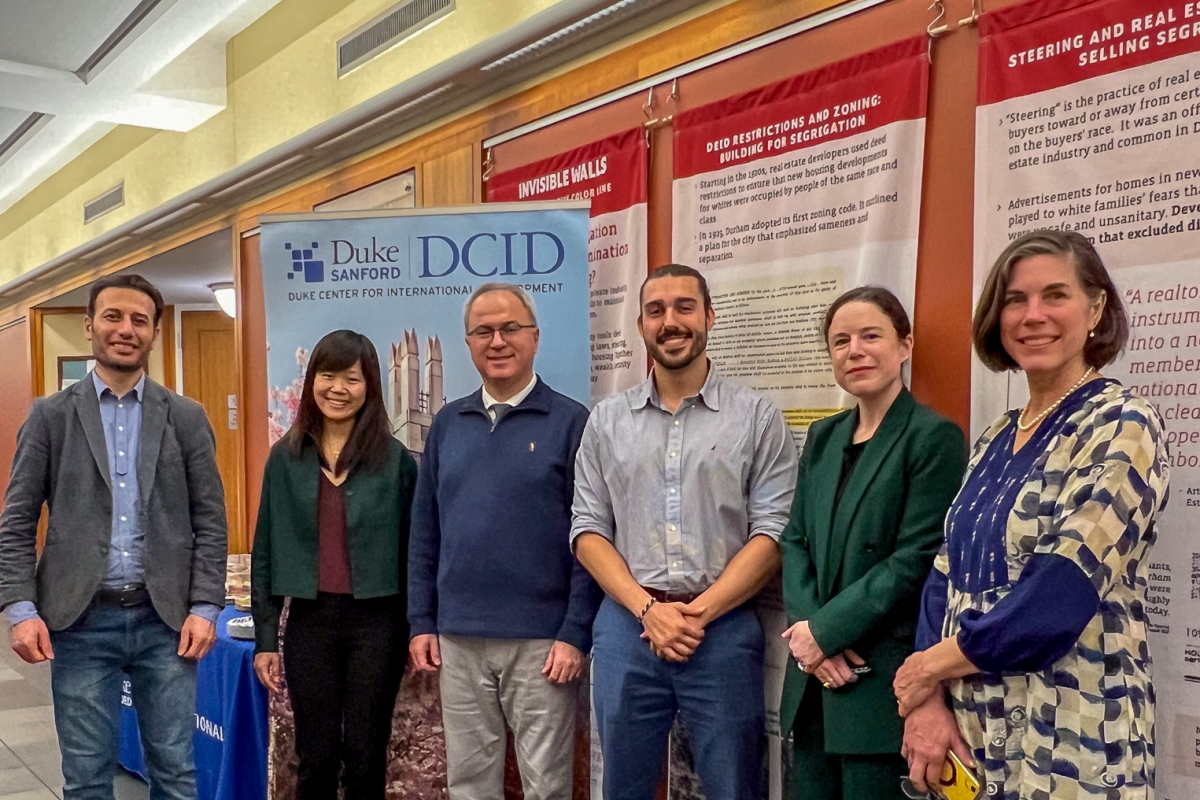Expert on Peacebuilding in the Middle East Visits Duke
Sarhang Hamasaeed MIDP ‘07 shared wisdom from his peacebuilding and international development work as part of the Duke Center for International Development alumni-in-residence program.
By Emily Klein MSGH'24
Sarhang Hamasaeed, director of Middle East programs at the United States Institute of Peace (USIP), engaged with students, faculty and staff during his visit to Duke University as a Duke Center for International Development (DCID) alumnus-in-residence.
After graduating from Duke in 2007 with a Master of International Development Policy (MIDP) degree, he went to work for the Kurdistan Regional Government of Iraq and then the USIP, where his areas of focus now include political and conflict analysis, dialogue processes, reconciliation and post-conflict stabilization, ethnic and religious minorities, and organizational development.
His visit to campus began with speaking to graduate students interested in careers in peacebuilding. In a conversation facilitated by Marion Pratt, director of global careers at the Sanford School of Public Policy, Hamasaeed discussed the skills, knowledge and mindset he believes are critical for a successful career in peacebuilding and development.
“Sarhang's visit was very inspirational,” Christian Menin MIDP'24 said. “To be effective professionals, Sarhang invited students to get out of their comfort zones and to focus on a threefold core profile comprised by skills, critical thinking and relationship-building.”
“An important lesson he shared for students is to start with ourselves in peacebuilding and ‘never give up’ because every challenge is a lesson to learn how to make the world a better place and be a force for building hope,” Imad Alhajj MIDP'24 added.
Sharing his insights on current conflicts in the Middle East, Hamasaeed sat down for a candid conversation about the state of democracy in the region with Mara Revkin, associate professor of law and political science. During the event, “Peacebuilding in the Middle East: Listening to Local Perspectives,” he provided examples from his personal experience living in Iraq under Saddam Hussein when talking about the strong desire people have for democratic values and whether democracy is tenable in many Middle Eastern countries.
“Sarhang’s vision and peacebuilding work is about ‘shaping opportunities’ of despair when facing difficulties, hardship and conflict, and is deeply informed by his lived experience and life journey living in the conflict in Iraq and the Kurdistan region and many years working in humanitarian response, peacebuilding and displacement,” Alhajj said.
The conversation struck a hopeful note as the speakers commended the resilience and bravery of women protesting across Iran and the value of facilitating conversations that can increase opportunities for peace.
“In such a complex moment we live in regarding wars and conflicts, Sarhang passed a message of optimism and hope - two things peacebuilders and changemakers can never lose [when] trying to make the world a better place,” Menin, a Duke-UNC Rotary Peace Fellow, said.
The event, hosted by the Duke Center for International Development (DCID), Duke-UNC Rotary Peace Center and South-North Scholars, concluded with the speakers addressing audience questions about the impact that climate change will have in the region, how women’s rights can be expanded, and what the speakers make of tensions in the Gulf region.
Hamasaeed’s visit also included meetings with undergraduate students involved in the South-North Scholars network and master’s students pursuing the University of North Carolina's International Peace and Conflict Transformation graduate certificate.
"Sarhang’s visit and talk was transformative, a source of hope, and beautifully resembled the Kurdish proverb: ‘Life is beautiful like a rose, smell it and share it with your friends,’” Alhajj said.



